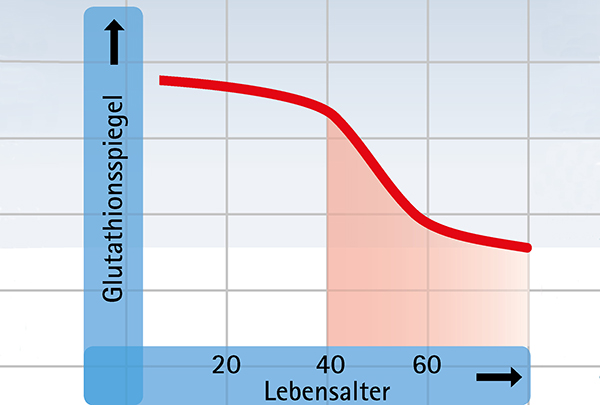
The coenzyme Q10 is able to effectively intercept harmful free radicals in the body and render them harmless
(= antioxidant).
Ubiquinone Q10 is the only known endogenous fat-soluble antioxidant. It exists in the body in two forms, the reduced and the oxidized form, which both perform certain tasks.
Q10 is antioxidant in two ways. Once it acts as an antioxidant in reduced form (ubiquinol) as diphenol, on the other hand the side chain of the ubiquinone (oxidized form) is membrane-stabilizing. In its function as a radical scavenger, Q10 is consumed. An adequate presence of the radical scavenger Q10 can effectively reduce oxidative damage in the body. Ubiquinone Q10 is of particular importance for neurodegenerative (nervous) disorders, as oxidative stress (too many free radicals) is considered to be one of the main causes of nerve cell damage. Too many free radicals mostly attack the nerve cells and especially their mitochondria. As a result, the energy metabolism of the nerve cells is increasingly impaired and thus their function is severely hampered.
In a new, ground-breaking study with coenzyme Q10, cardiac insufficiency patients taking dietary supplements with Q10 were found to have a 43% lower risk of death from heart problems. Ubiquinone was used in this study (Q-symbio).





